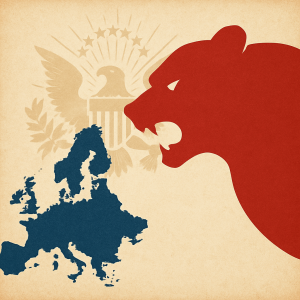It is simple, obvious, perfectly clear. Putin has amassed troops on Ukraine’s eastern borders and in annexed Crimea as a reminder that no one could stop him from embarking on a third violation of Ukraine’s territorial integrity without risking a war between the Atlantic Alliance and the Russian Federation.
This would be the beginning of a third world war. Mr Putin doesn’t want this any more than anyone else, but the fact is that his gesticulations in Ukraine quickly led Joe Biden to pick up the phone and offer him a summit meeting. After having so rightly called him a “killer” and even though the news about Alexei Navalny is more alarming and odious every day, the President of the United States has just acknowledged that the Russian president remains an obligatory interlocutor.
So let’s face it, let’s say it, Vladimir Putin has won a round, but what will the White House and the Kremlin now try to negotiate in the run-up to this summit and at the summit itself?
Probably they will try to resurrect arms control. In exchange for a Western opening on the reconstruction of Syria, perhaps Vladimir Putin will also offer his assistance in the search for a lasting compromise between Washington and Tehran. And then, as a main course, there will of course be Ukraine and, with it, the other former Soviet republics that have become independent but remained on the doorstep of the European Union and the Atlantic Alliance.
Vladimir Putin will ask Joe Biden that these countries should never be integrated into the NATO, so that the Atlantic Alliance should not extend to Russia’s own borders, but what could he offer in exchange?
This will be the whole focus of this summit in which Vladimir Putin has at least two cards to play. He can offer to withdraw from the Donbass if an autonomous status is granted to this largely Russian-speaking region. He can also accept the establishment of control mechanisms giving credibility to guarantees of Russian non-intervention in the internal affairs of Ukraine and of the countries between Russia and the Atlantic Alliance.
If an American-Russian dialogue were to be finally established, Ukraine, Moldova and Georgia could be given a neutral status and a bridging role, and so their fate would be decided between Washington and Moscow.
Understandably, many people in Central and Eastern Europe are worried about this. The unease is all the more profound as the Belarusian question would remain unresolved as these countries are more within reach of Russia than of the European Union or the United States. After his posturing has brought Russia back to the top table, Mr Putin may be scoring points in what he continues to call his “near abroad”. We can worry about this. In fact, we must worry about this, but what would be more dangerous?
The negotiated creation of a buffer zone between Russia and the Atlantic Alliance or the development of a confrontation that would soon only leave the choice between unlimited war and a resignation to the Kremlin’s faits accomplis?
Let those who are ready for war raise their hands.
Well…
No hand is raised and perhaps we should see that beyond his manoeuvres, Vladimir Putin is in fact making demands because he does not have the means to go through with a showdown. As Joe Biden will attempt, in other words, perhaps it is necessary to take advantage of the Russian president’s economic difficulties and the weakening of his regime, of his growing unpopularity and of the ever greater rejections he faces in the former Soviet republics, of his ageing, of his impasse in Syria and of the aspiration of the new Russian middle classes for more freedom, less rapprochement with China and more convergence with Europe, in order to negotiate the great geopolitical compromise that the Russians, peace, the Westerners and all those, above all, whom history has left behind on the dividing line, so badly need.



